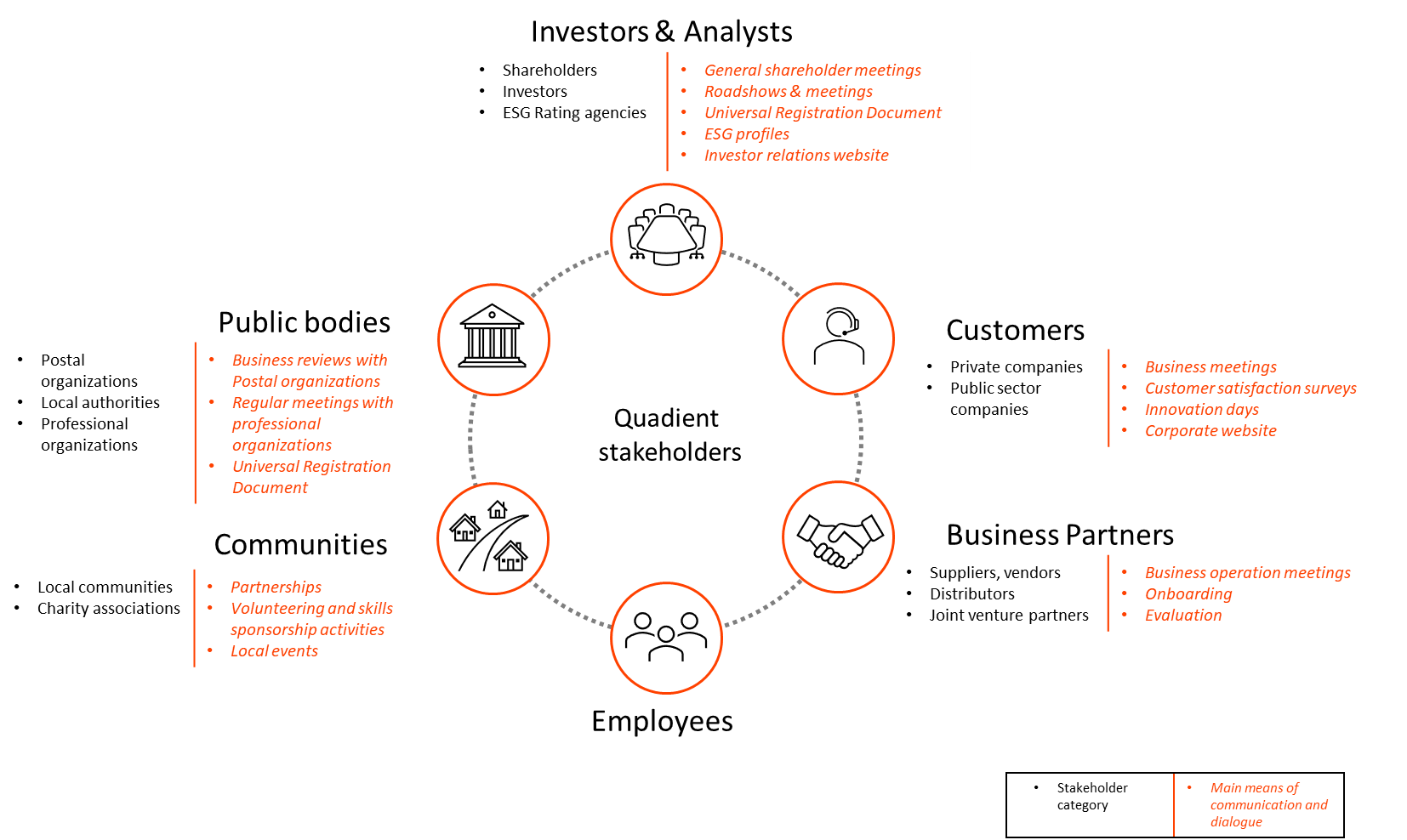Our Commitment to Sustainability
Quadient's approach to Corporate Social Responsibility (CSR) is driven by a strategy focused on three main pillars:
- Customers: Building trust with market-leading solutions;
- People & Communities: Elevate our People to drive our success; and
- Environment: Grow sustainably, Reducing our Impact on the Planet.
Our 2030 vision
Our vision for 2030 is to guide Quadient’s long-term sustainable growth with ambitious targets across our three pillars. This includes positioning Quadient to achieve net zero emissions by 2050, becoming a top employer of choice, and enhancing our customers' experience through sustainable and innovative solutions.

Our objectives
Building on our 2030 ambition, our roadmap for 2024-2026 focuses on nine specific ambitions, each with defined goals, aligned with the United Nations' Sustainable Development Goals (SDGs):
Our CSR Programs
Our commitment to these pillars is supported by comprehensive programs that strengthen our efforts and ensure thorough coverage of our CSR initiatives:
· Culture of Excellence and Integrity
· Reducing Our Environmental Footprint

CSR governance
As a result of the Company's strategy announced in January 2019, Quadient has also adjusted its CSR (Corporate Social Responsibility) strategy and organization to meet the needs of its future.
In terms of organization and governance, the CSR & Compliance team is part of the Transformation department, which is in charge of driving the strategic initiatives and transformation of the Company. The Strategy and Corporate Social Responsibility Committee of the Board of Directors, created in September 2018, now reviews the Company’s progress on CSR matters regularly and offers its advice and support for future improvements.
A CSR ambition defined with stakeholders
Dialogue with stakeholders
Quadient CSR ambition is based on a constructive dialogue with its stakeholders. Engaging through an on-going dialogue with all of them enables to improve Quadient CSR strategy on a regular basis. Such momentum is based on a detailed knowledge of the Company stakeholders and their specific concerns and expectations.
The stakeholders' mapping shown hereafter represents the ecosystem in which Quadient evolves as well as the main means/practices used by the company to dialogue and communicate with all of them.

Our material issues
Our CSR strategy is shaped by a comprehensive double materiality analysis conducted in consultation with our stakeholders. This analysis has been instrumental in constructing our new 2024-2026 strategy. It addresses the specific challenges of our operations and takes into account the expectations of our stakeholders in creating a sustainable future, while also maintaining our performance and stability.
We will soon share the results and methodology of this analysis.
